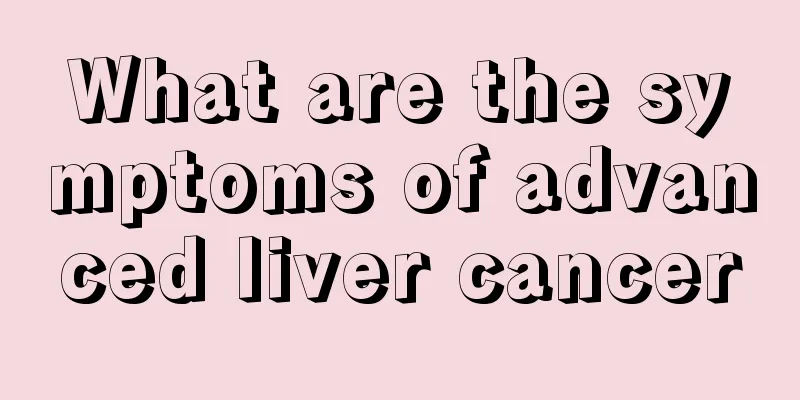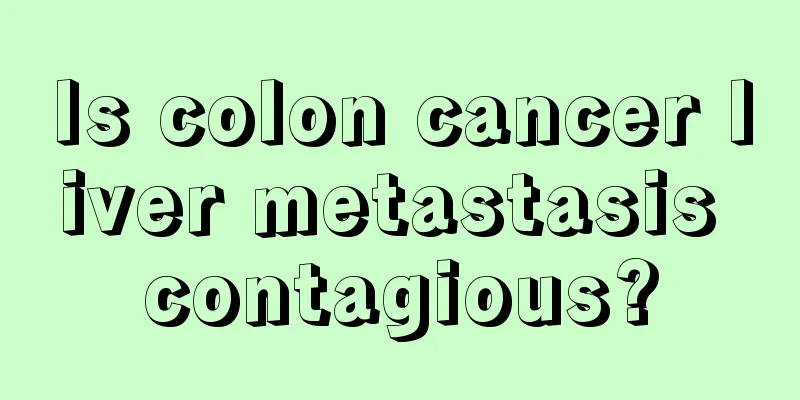What are the symptoms of advanced liver cancer

|
For patients with advanced liver cancer, their lives can actually be said to be counting down, so it is more important to detect these diseases in time and take timely treatment measures. Patients with advanced liver cancer will experience severe pain in the liver area, or symptoms such as difficulty breathing and massive gastrointestinal bleeding. 1. Severe pain in the liver area: Long-term damage and infiltration of liver tissue by tumors and local ischemia and necrosis of liver tissue can cause severe pain in the liver area due to liver cancer. The pain symptoms in the late stage of liver cancer will continue to worsen. Advanced liver cancer patients with extremely weak constitutions may not be able to endure the pain, leading to fainting and shock. If not treated in time, it may be life-threatening. 2. Massive gastrointestinal bleeding: Gastrointestinal bleeding in the late stage of liver cancer is the main cause of death from liver cancer. Due to portal hypertension in the late stage of liver cancer, esophageal and gastric fundus varices are caused, and due to factors such as damaged liver function and abnormal coagulation function in the late stage of liver cancer, rupture and bleeding of the esophagus, gastric fundus or cancerous nodules are prone to occur. The onset is rapid, the risk and mortality rate are high. Therefore, if there is a bleeding tendency in the late stage of liver cancer, special attention should be paid. 3. Dyspnea: It is a symptom that is difficult to deal with in patients with advanced cancer. Severe dyspnea can easily cause fear, and fear itself aggravates dyspnea. If not treated in time, it can easily cause shock and death. 4. Bleeding tendency: Gastrointestinal bleeding is common in the late stage of liver cancer and is also the main cause of death in liver cancer patients. It is mainly due to portal hypertension leading to esophageal varices. Bleeding tendency such as gingival bleeding and subcutaneous ecchymosis is common in liver cancer combined with cirrhosis. It is mainly due to damaged liver function and abnormal coagulation function. Therefore, attention should be paid to liver cancer patients who have severe bleeding. 5. Hepatic encephalopathy: Hepatic coma can be said to be a manifestation of terminal liver cancer. Hepatic encephalopathy may be caused by upper gastrointestinal bleeding, infection, hypokalemia, improper drainage of ascites and other inducing factors. It has a low cure rate and a high mortality rate. Therefore, preventing its inducing factors is a very important factor for patients with advanced liver cancer. ? |
<<: What to do if liver cancer metastasizes into the liver
>>: Can dried starfish be used to soak in wine?
Recommend
Can bile duct cancer be cured?
Today we talked about bile duct cancer. Before th...
How many months of pregnancy does it take to enter the pelvis?
We know that many people have various doubts when...
How to reduce swelling in ears
If the ear suddenly becomes red and swollen when ...
What are the most common methods for treating lung cancer? What are the most effective methods for treating lung cancer?
At present, the treatment of lung cancer is still...
What should be paid attention to in the treatment of lung cancer? These three aspects should be paid attention to in the treatment of lung cancer
What should we pay attention to when treating lun...
What are the early symptoms of liver cancer? What tests are needed for early liver cancer?
Everyone may have heard of liver cancer, but it i...
Can color Doppler ultrasound detect liver cancer? Should I choose B-ultrasound or color Doppler ultrasound for liver cancer examination?
Liver cancer is a very frightening malignant tumo...
How to eat honeysuckle and its effects
Everyone is familiar with honeysuckle, and many p...
Is it good to eat too much garlic?
Some people can accept eating raw garlic, but som...
Bump on the upper palate
I believe that many people cannot avoid some prob...
What are the daily care for fibroids
Fibroids have a relatively high incidence rate am...
Ten tips to prevent gallbladder cancer
The incidence of gallbladder cancer has been incr...
What does the left eyelid twitching indicate?
In modern life, the twitching of the left eyelid ...
Will angina pectoris cause sudden death? Timely treatment is the most important thing
Angina pectoris is most common in men over 40 yea...
How to remove bloodshot eyes
If we have bad living habits, it is easy to cause...









